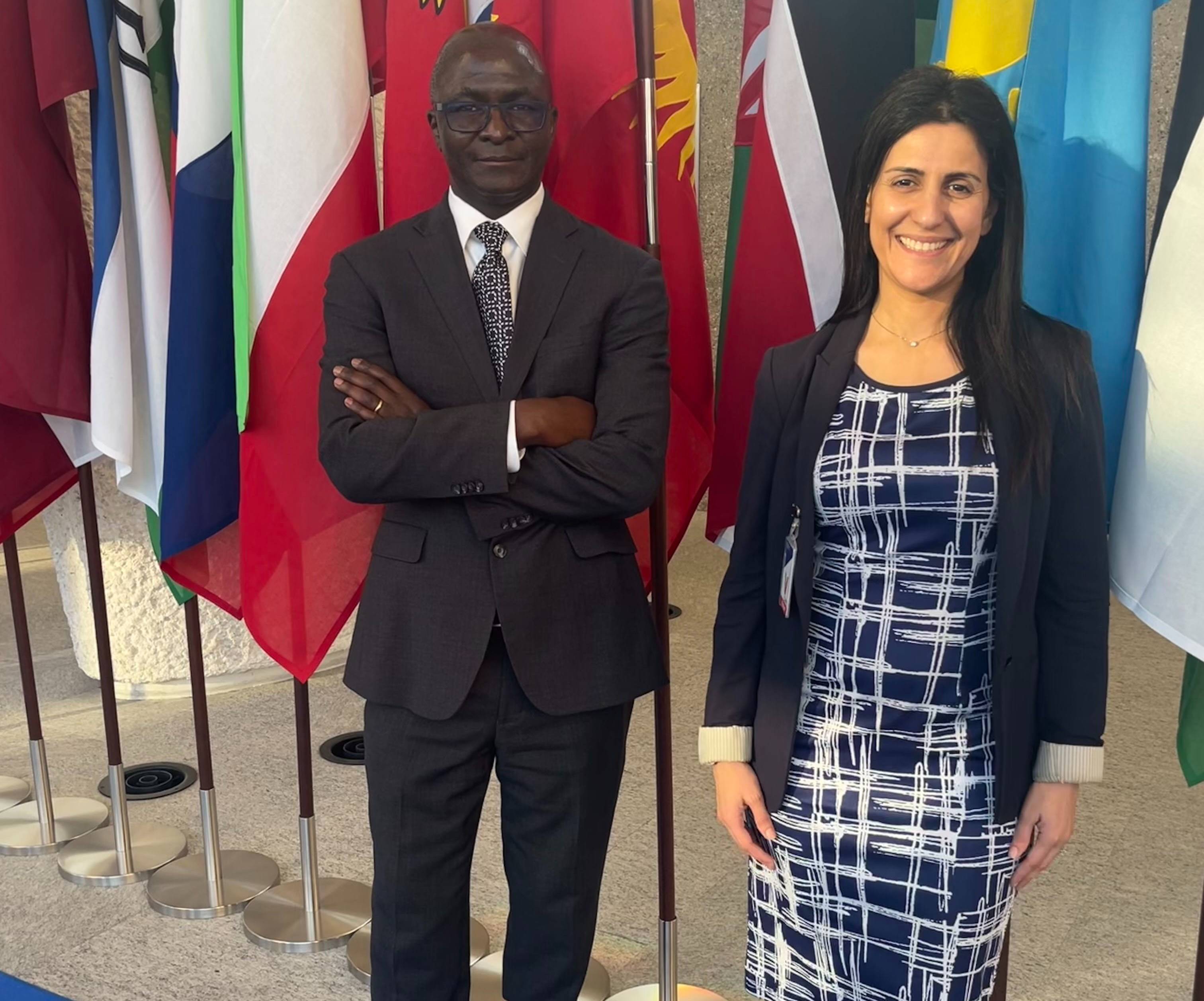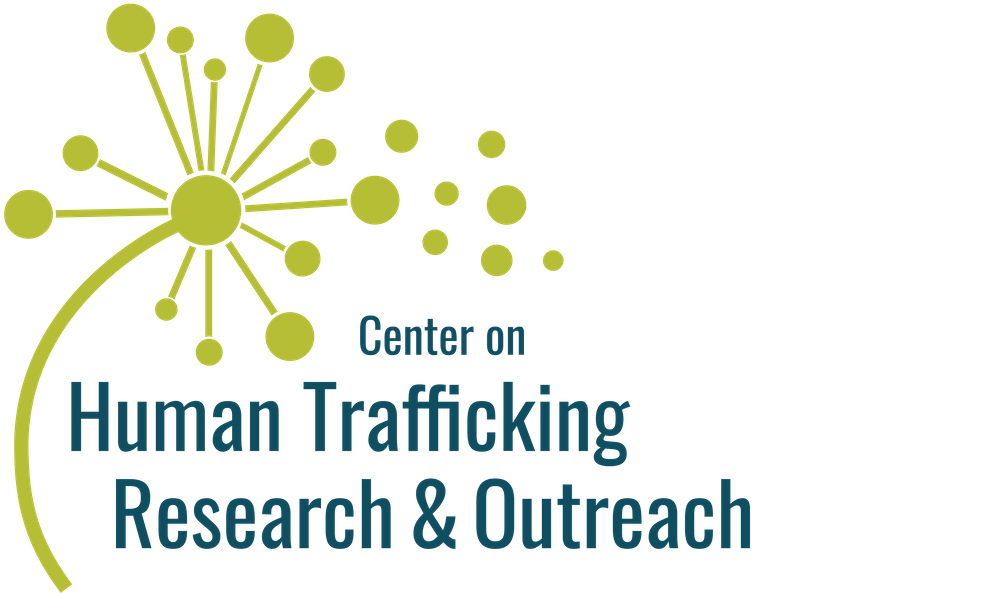CENHTRO PARTNERS WITH UN AGENCIES TO STANDARDIZE HUMAN TRAFFICKING Definitions
Tuesday, April 4, 2023
|
International conventions and national laws each define human trafficking in legal
terms. But little is known about how these definitions differ or overlap, posing problems
for researchers who seek to precisely measure the prevalence of human trafficking
in its many contexts around the world. |
 CenHTRO Director David Okech and Associate Director Lydia Aletraris photographed at
the International Labour Organization headquarters at the United Nations in Geneva,
Switzerland, in February 2023. CenHTRO Director David Okech and Associate Director Lydia Aletraris photographed at
the International Labour Organization headquarters at the United Nations in Geneva,
Switzerland, in February 2023. |
|
The project involves the International Labour Organization, the United Nations Office on Drugs and Crime, and the International Organization for Migration, and is part of a $2 million grant funded by the U.S. Department of State Office to Monitor and Combat Trafficking in Persons. UGA is represented by Dr. David Okech, professor of social work and CenHTRO director, Dr. Lydia Aletraris, CenHTRO associate director and associate research scientist at the School of Social Work, and Dr. Laura Zimmermann, associate professor in the department of economics in the Terry College of Business and the School of Public and International Affairs. Aletraris said the collaboration between UGA and the UN will be essential in strengthening and coordinating national and international approaches to human trafficking prevalence measurement. “Comprehensive standardized guidelines do not currently exist, so this project responds to the need for consistent, universal, robust, and ethical tools and methodologies," said Aletraris, who is co-principal investigator with CenHTRO Director David Okech. The UN’s Palermo Protocol, the ILO’s Convention 29 on forced labor, and the U.S.’s Trafficking Victims Protection Act all offer legal definitions of the various forms of human trafficking. Tools created through the partnership will adapt these legal conventions into statistical definitions that can be utilized in research at the international, national and local level. Accurate data is a key tool in fighting a crime that transcends borders and cultures. Estimations help governments to allocate resources, design interventions, and can prove the effectiveness of anti-trafficking programs. Comparing various prevalence estimations is difficult, Aletraris said, due to the multiple methods used, as well as the many global definitions of human trafficking. Universal tools and standards developed in the partnership will allow trafficking researchers and practitioners to have a better understanding of the nature of human trafficking. “Having standardized and universal tools are important in accurately identifying cases of human trafficking across cultures, locations, and types of trafficking,” Okech said. “They help inform how we respond to the issue in the most effective way possible. Human trafficking is not just a legal or criminal issue, it is also a human rights issue that needs to be defined with concrete indicators at the research and programming levels.” To create tools that are customizable across a range of contexts, CenHTRO will organize five regional workshops that gather a diverse cross-section of active anti-trafficking stakeholders. The workshops will cover Asia, French-speaking Africa, English-speaking Africa, Latin America, and Europe/North America. They will ensure buy-in from the UN’s member states, which will be crucial for the development and acceptance of international standards, Aletraris said. A key CenHTRO research initiative, the Prevalence Reduction Innovation Forum, which oversees seven prevalence estimation research projects in six countries across the world, has brought UGA to the forefront of the field. Okech said, “By representing academia in this UN partnership, UGA again proves its global reputation as a leader in the science of human trafficking prevalence measurement.” |
|
